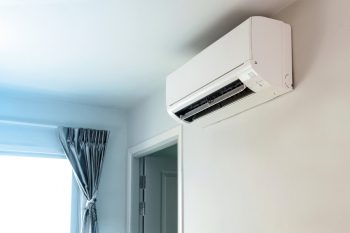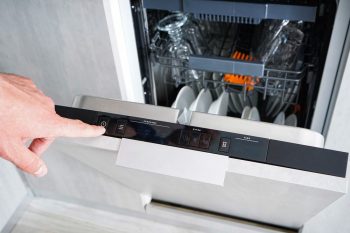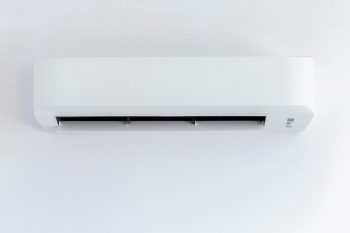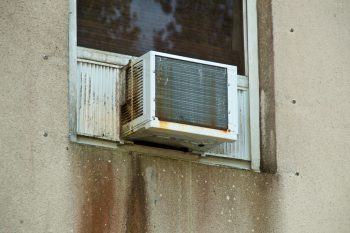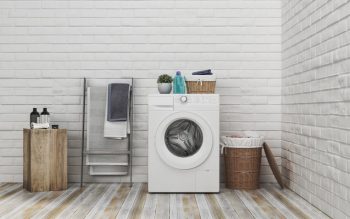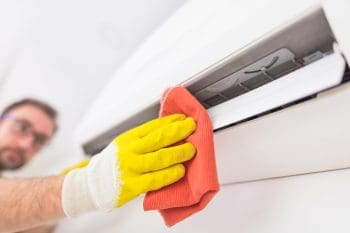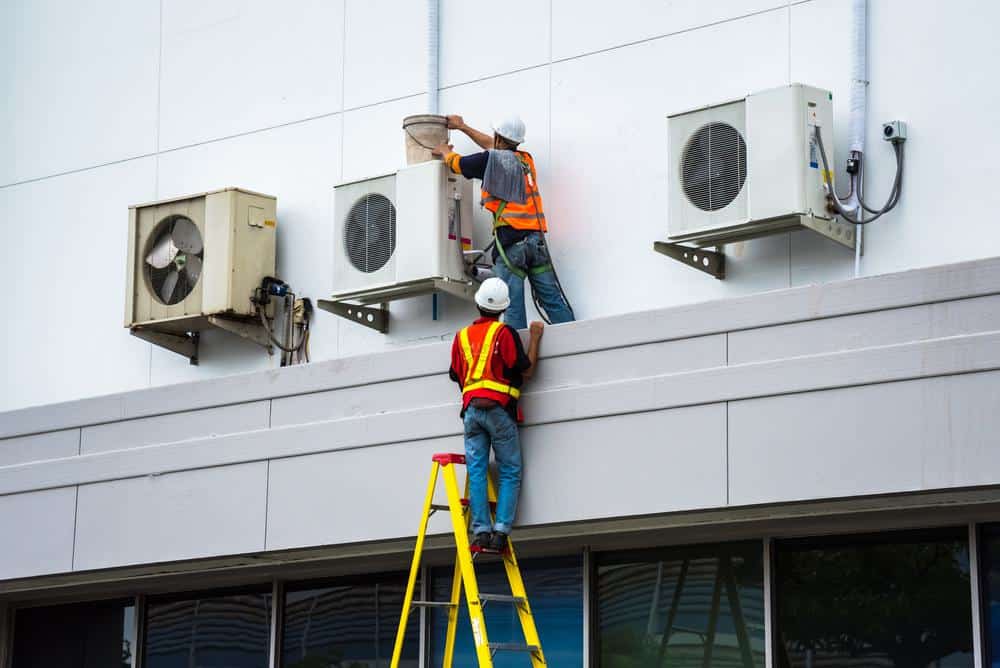
Air conditioning (AC) is a necessity for many, especially during the hot summer months. However, it can be quite frustrating and uncomfortable when your AC stops working, particularly when your vehicle is idle. This comprehensive guide will delve into why your AC might stop working when you stop, the roles various components play, and steps you can take to fix the issue.
Your AC might stop working when you stop due to several reasons such as an overheated engine, a restricted system, faulty motor fans, issues with the thermostat, or problems with internal components like the compressor or condenser. External factors like extreme weather conditions and power fluctuations, as well as the age of the unit and lack of regular maintenance, can also contribute to this problem.
Common Reasons Why an AC Unit May Stop Working
Several factors can cause your AC to stop working when you stop. These include:
- An overheated engine
- A restricted system
- Faulty motor fans
An overheated engine can affect the cooling fans in the radiator and condenser, causing the AC system to heat up. A restricted system can decrease the cooling capacity of your AC, causing it to malfunction when the vehicle is idle. Faulty motor fans can also cause the AC to stop working properly when idle.
The Role of a Thermostat in an AC Unit
The thermostat plays a crucial role in controlling the heating and cooling processes of an AC unit. It senses the indoor temperature and signals the AC unit to produce the desired temperature in the room. Any issues with the thermostat can cause the AC to stop working or function improperly.
The Importance of Regular Maintenance
Regular maintenance of an AC unit is crucial for its performance, efficiency, and longevity. Neglecting necessary maintenance can lead to a steady decline in air conditioning performance and an increase in energy use. Regular maintenance tasks include replacing or cleaning filters, which can significantly improve a system’s efficiency.
The Effect of External Factors on AC Performance
External factors like weather conditions and power fluctuations can cause an air conditioner (AC) to stop working. Extreme temperatures, storms, heavy rain, and lightning can all affect the performance of your AC unit. Sudden changes in voltage can also cause the AC’s compressor to work harder, potentially leading to overheating and system failure.
Signs of an AC Unit Failure
There are several signs that an AC unit is about to fail or stop working. These include warm air coming out of the vents, weak or insufficient airflow, strange noises, unpleasant odors, moisture or puddles of water around the AC equipment, high electricity bills, and frequent cycling.
Issues with Internal Components
Issues with the AC’s internal components, such as the compressor or condenser, can lead to the AC stopping. Blockages, overheating, electrical problems, fan problems, faulty condenser relay switches, bent fins, and refrigerant leaks can all cause your AC unit to stop working.
The Effect of the Age of an AC Unit on Its Performance
The age of an AC unit can significantly affect its performance and may eventually lead to failure. Older AC units are generally less energy-efficient than newer models, which have higher SEER (Seasonal Energy Efficient Ratio) ratings. As the unit ages, its efficiency decreases, causing it to work harder to maintain stable temperatures in your home, resulting in increased energy use.
Steps to Take When Your AC Stops Working
When your AC unit stops working, there are several steps you can take to troubleshoot the issue before calling a professional. These include checking the thermostat, inspecting the circuit breakers, examining the air filters, cleaning the condenser coils, checking the drain line, inspecting the outdoor unit, looking for refrigerant leaks, listening for unusual noises, checking for frozen evaporator coils, and scheduling professional maintenance.
Energy-Efficient AC Units to Consider
There are several energy-efficient AC units available in the market that you can consider for replacing your old one. Some of the top energy-efficient air conditioners include the Midea U-Shaped Air Conditioner, Friedrich CCV08A10A, LG Dual-Inverter 18K, Whynter ARC-14S, Windmill AC with WhisperTech, Frigidaire FFRE053WAE, Lennox XC25, Amana AVXC20, Lennox SL28XCV, and Carrier Infinity® 26 Air Conditioner with Greenspeed® Intelligence.
In conclusion, there are several reasons why your AC might stop working when you stop. The age of the unit, lack of maintenance, external factors, and issues with internal components can all contribute to this problem. However, by taking proper care of your AC unit, you can prevent many of these issues and ensure its efficient operation. If you notice any warning signs or issues with your AC, it is essential to address them promptly to avoid further damage and potential system failure.
Frequently Asked Questions
What is the SEER rating?
The SEER (Seasonal Energy Efficiency Ratio) rating is a measure of the cooling efficiency of your air conditioner or heat pump. The higher the SEER rating, the more energy-efficient the unit is.
How often should I replace or clean my AC filters?
Ideally, you should replace or clean your AC filters once a month. However, the frequency can vary depending on factors such as the type of filter, how often your system is running, and the level of air pollution and dust in your area.
What are some common signs of a refrigerant leak?
Some common signs of a refrigerant leak include a sudden drop in cooling capacity, ice on the refrigerant line, a hissing or bubbling noise, and an increase in energy bills.
How can I make my AC unit more energy-efficient?
To make your AC unit more energy-efficient, ensure regular maintenance, use a programmable thermostat, keep your AC filters clean, ensure proper insulation in your home, and consider upgrading to a high-efficiency AC unit.
What does it mean when my AC unit is cycling on and off frequently?
Frequent cycling of your AC unit could indicate an oversized AC system, a refrigerant leak, dirty or blocked condenser coils, or a malfunctioning thermostat. It’s best to have a professional diagnose and fix the issue.

